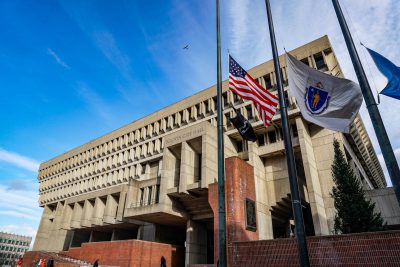
SOPHIE PARK/ DAILY FREE PRESS STAFF
The political, economic and cultural core of New England, Boston is one of the oldest and history-rich cities in the United States. However, the city still faces several essential issues that will require the collaboration of all the city’s residents — locals and students alike — to solve.
Inequality
Boston is renowned as one of the most diverse cities in the U.S. However, the city also faces a problem regarding inequality.
In a comprehensive investigative report, the Boston Globe’s Spotlight team found that the average black resident of Boston had a net worth of just $8. In comparison, the average white resident was worth over $257,000 dollars.
Boston Mayor Martin Walsh — who ran on a liberal and progressive platform — has many ideas for leveling the playing field, including increasing education and economic opportunities for traditionally lower-income demographics.
Housing
Boston is currently facing a housing shortage that is driving rent prices up. However, this problem does not just affect new residents, as families that have lived in the city for decades find it increasingly harder to stay in their homes.
The base of the issue is the fact that new residents are more willing to live in neighborhoods that were historically home to lower income families living in less expensive housing. These communities include Mattapan, Dorchester, Roxbury and East Boston.
But, as these new residents are flooding the housing market, landlords are raising rent prices, forcing families out of their homes in search of affordable housing.
Walsh is working with various community organizations to develop solutions to this worsening problem, from instituting rent control to building thousands of new apartment units.
Transportation
Boston had the worst traffic in the U.S. according to a recent study by traffic analytics firm INRIX. It estimates that Bostonians lose an average of 164 hours to rush-hour traffic in 2018, amounting to an estimated total of $4.1 billion in lost productivity time.
This makes Boston worse than any other metropolitan area in the U.S., including Los Angeles and Chicago.
The Massachusetts Bay Transit Authority—which owns and manages the Greater Boston Area’s subway, bus and commuter rail systems—has been plagued for years by service issues, maintenance problems and cost overruns.
Whether through bike-sharing services such as Boston’s BlueBikes, car-sharing services such as Uber or Lyft or through emerging alternatives such as scooter sharing — which recently began an eight-month pilot in the neighboring city of Brookline — residents have often turned to modern shared-mobility options to avoid having to drive through Boston’s congestion.
However, Boston is experiencing growing pains under the weight of all these new solutions.
Car-sharing services are being blamed for endangering bicyclists and worsening congestion while picking-up and dropping off passengers, while some Brookline residents are complaining about e-scooter riders forcing themselves onto sidewalks and endangering pedestrians.
Walsh has plans to revamp Boston’s urban mobility by boosting public transit ridership and increasing the transportation options available to Bostonians for their daily commute.




